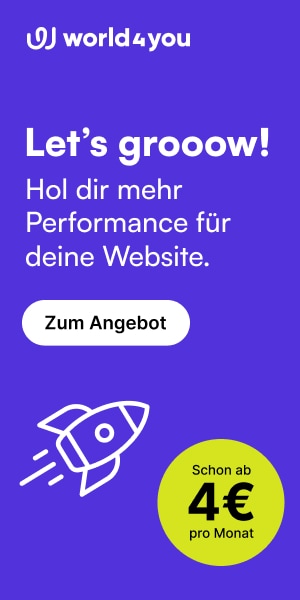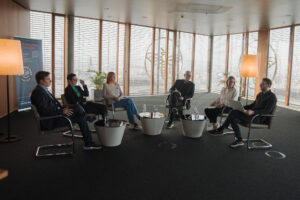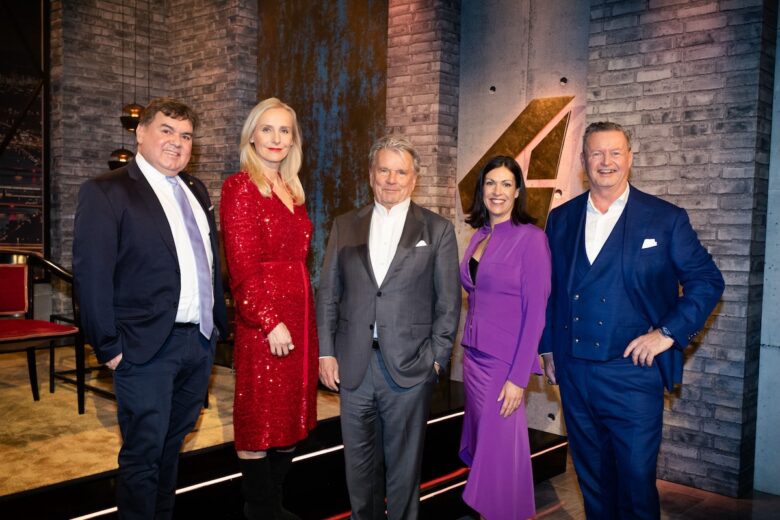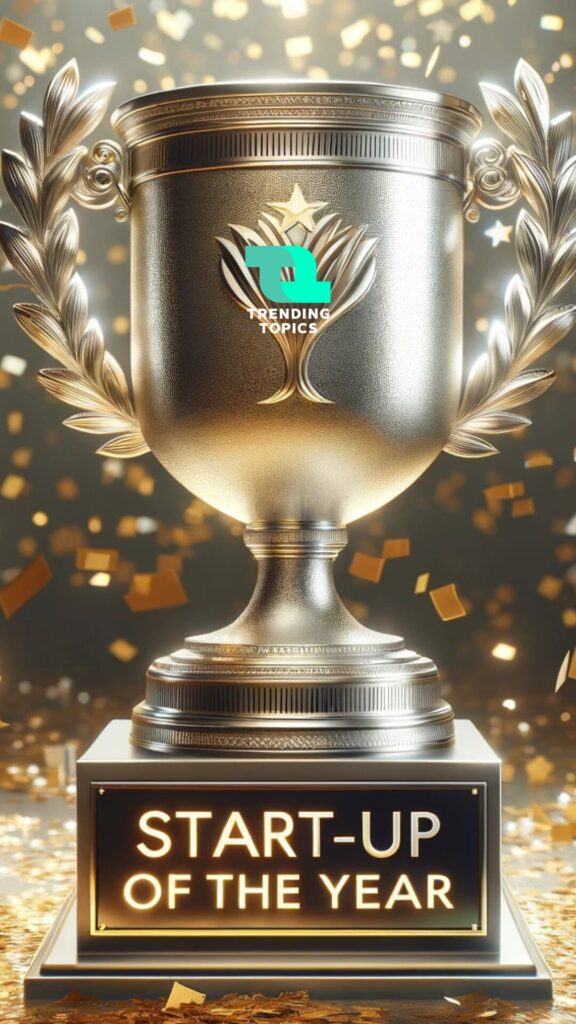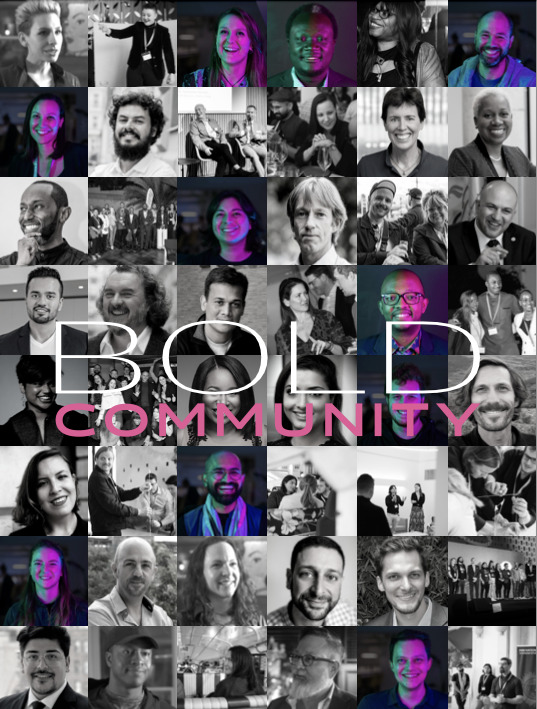10 take aways for European founders from spending time in the Valley

Spending three months in the Speedinvest office in San Francisco has been incredibly insightful and has given me a different perspective on the European venture capital scene. I would highly suggest to every European founder to at least spend some time in the Silicon Valley. In this article, I want to share a list of my top 10 take aways for European startup founders from my time there.
1. It’s a different world out there
If you spend too much time with European venture capitalists and startups, you start to believe that you’re on the forefront of changing the world with new ideas. The Silicon Valley gives you a newsflash, because it’s unfortunately still so much ahead of us: the topics that investors focus on are still considered somewhat futuristic in Europe (blockchain, AI, AR/VR), the relation in terms of money is ridiculous ($74.5bn funding in US vs. $17.6bn in Europe), every Uber/Lyft driver knows what venture capital is (in Austria, sadly even some business students don’t know the term), VC events actually consist of startups and not of corporates who want to show how innovative they are, and deals get done within days and not months.
2. Focus is everything
The Silicon Valley is still the center of startup activity, and that is reflected in the plethora of meetups, conferences and workshops you can attend. This is an amazing opportunity to learn from other founders who have already been successful and to connect with investors at an early stage. However, make sure you don’t get lost in attending every single event that sounds potentially interesting. Only go to events with a clear goal (e.g., connect with person X, make X sales). Or set strict rules for yourself: only go to conferences where you have a speaking slot or other presence, or if you can get the list of participants, set a limit of one event per week. Most importantly, don’t lose sight of what is really important: building your company.
3. No one cares about Europe (or any other market, really)
Ask investors where, outside of Silicon Valley, they could see potential for finding interesting startups, and they will most likely answer with a list of the following cities: New York, Boston, LA, Washington, San Diego or Seattle — markets outside of the US aren’t even on their radar. There are a few events that focus on investing outside the US (e.g., the cross-border venture summit), but you won’t see any of the typical SV investors there. There is no need for startups to expand to other countries as the US has both enough market size and enough money, and there are enough startups for investors to not have to look outside — much unlike startups in Europe, which have to expand to other countries within the first 1–2 years (definitely before their Series A), and investors who are always interested in maintaining a good US network.
4. Your network is your biggest asset
If you thought networking was important in Europe, then it’s all about networking in the Silicon Valley. There is so much going on — how else would you be able to see through all the noise? Any SV investor will tell you that they get almost all their deal flow through their network — it’s the easiest way of excluding bad startups (although they’re risking a lot of false negatives, but there is enough deal flow as it is). I’m time and again impressed by the herd behavior in VC, and the Silicon Valley is the prime example of how this works: get the interest from one of the top VCs and your round will be oversubscribed in an instant. New investors’ go-to-market is to network with the existing players in order to leverage this connection to get into their pre-vetted deals. It makes me wonder if anyone actually does due diligence on the startups. Everyone seems to be waiting for the “invest” signal of one of the top players and/or an invitation to join an investment round.
5. Learn to name-drop (but do it right)
It’s crucial to highlight how strong your network is (remember: your network is your biggest asset). People love to name-drop in the most random contexts — think ordering a burger and your companion telling you that Jason (Lemkins) recently mentioned that he loves onions in his burger (ok, that’s not an actual quote, but I’m definitely not exaggerating here). If you want to be part of the crowd, learn how to do this in a sensible way, and don’t start lying about who you’re connected with. One startup founder told me about an investor who gave him references to a few high-level VCs in the valley (Tim Draper, KPCB, etc.), and since he actually knew these people, he reached out to ask about that investor. It turned out they had never actually heard of the investor before (the investment obviously didn’t happen after that).
6. It’s super easy to connect
Speaking of name-dropping: in Europe, it’s almost impossible to connect with important people, but that’s not the case in Silicon Valley. The highest level executives and venture capitalists will respond to requests and are happy to take a few minutes to talk to you. I couldn’t make it to an event I had signed up to go to, so I sent a quick email to the event organizer. Jason Calacanis (who had been cc’ed on the email) responded telling me he hoped I’d be able to join the next event. There is a saying in the SV that you should be nice to everyone, as you never know who will be building the next Google. Hopefully, people in Europe will adopt this view soon too.
7. Americans don’t follow up
Having said that everyone is very open to connecting, I have to follow this with a big caveat: people hate to actually follow up. You can easily get into contact with almost everyone, but getting an actual follow-up meeting is very difficult. This can be super confusing for Europeans. Everything is always “awesome” and “super interesting,” but not worth a second meeting? Even though I know American culture quite well through my personal background, this still really frustrates me. Make sure you don’t waste your time with people who will never buy or invest in your product (the only way to know that is by understanding if the company you’re talking to actually fits your customer/investor criteria or persona).
8. Learn to sell like an American
One of my key findings: Silicon Valley doesn’t have more sophisticated tech or smarter founders. The one thing that Americans are 100x better at than the Europeans is selling themselves and their companies. Every incubator and startup program is geared towards making founders even better at it, pitching and telling a story. Put a top European startup and a mediocre SV startup together in a pitching competition, and the SV startup will most likely win. It seems that the European culture makes it difficult for founders to explain to other people/investors how great their startup is, but this is something that can be learnt. Believe in your vision and train your pitch. After listening to pitches in SV, I promise the likelihood of Europeans overselling is quite low.
9. You should still start your company in SV
I wish this wasn’t one of my conclusions, because I’m a true European at heart, but if you have the choice, the best thing you can do is to start your company in the Silicon Valley. There are more and more players in Europe trying to change this, and I believe we’ve developed a lot in the past few years — at least I know Austria has made a major jump from when Speedinvest was launched in 2011 to now, but there is still a long, long way to go. What we need is for everyone to understand that startups are not a hype that will pass but a new way of working together, being flexible and allowing for quick innovation. But as long as this hasn’t happened yet, you will get more funding, more interest from corporates and a better knowledge network if you build your company in the Silicon Valley or move there as soon as possible (the latter is something we at Speedinvest would love to support you with).
10. Europeans are better at partying
One thing we still beat every other continent at is partying. Networking events in the Silicon Valley will end at 10pm and people actually go home at this time. If you’ve ever been to a European startup event, there’s always a few people who have to be thrown out at the end of the event. Even if it’s still more difficult to build successful startups in Europe, at least we have more fun doing it 😉
There are lots of markers pointing towards Europe finally at least starting to catch up to the US. However, as long as we’re still lagging behind we should look to the Silicon Valley to see how building startups is done. Eventually, I’m convinced that we have the talent and resources here to be just as innovative and fast — the one thing we still have to change is our mentality.
I’d love to hear your thoughts on and experience with the Silicon Valley! Leave comments here or reach out to me on isabel@speedinvest.com.



